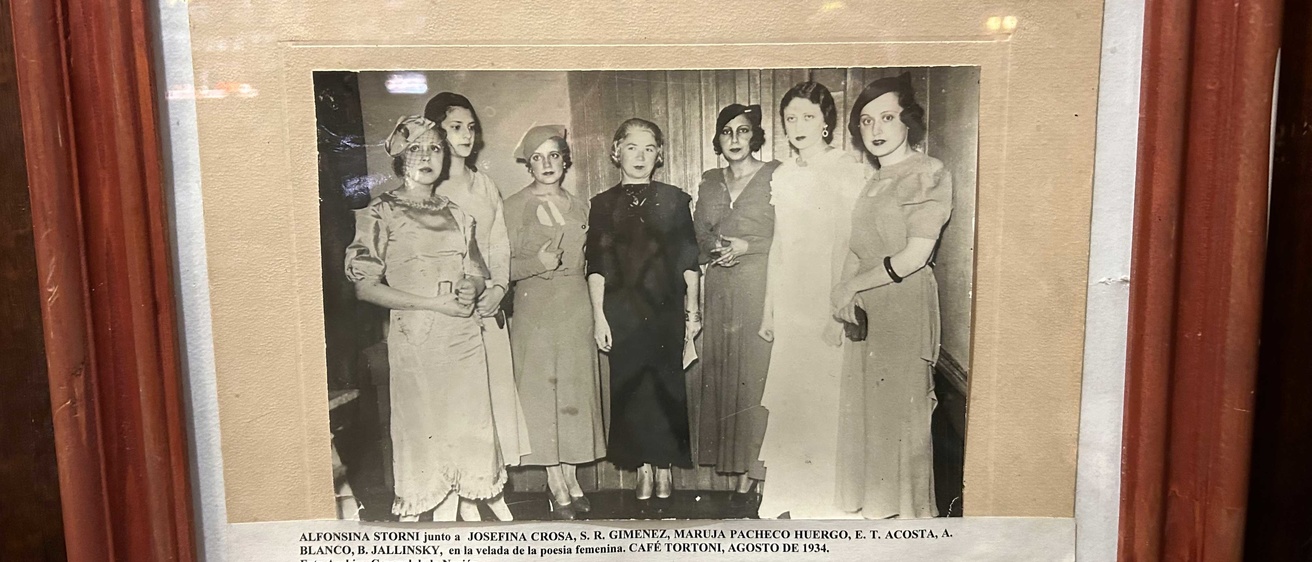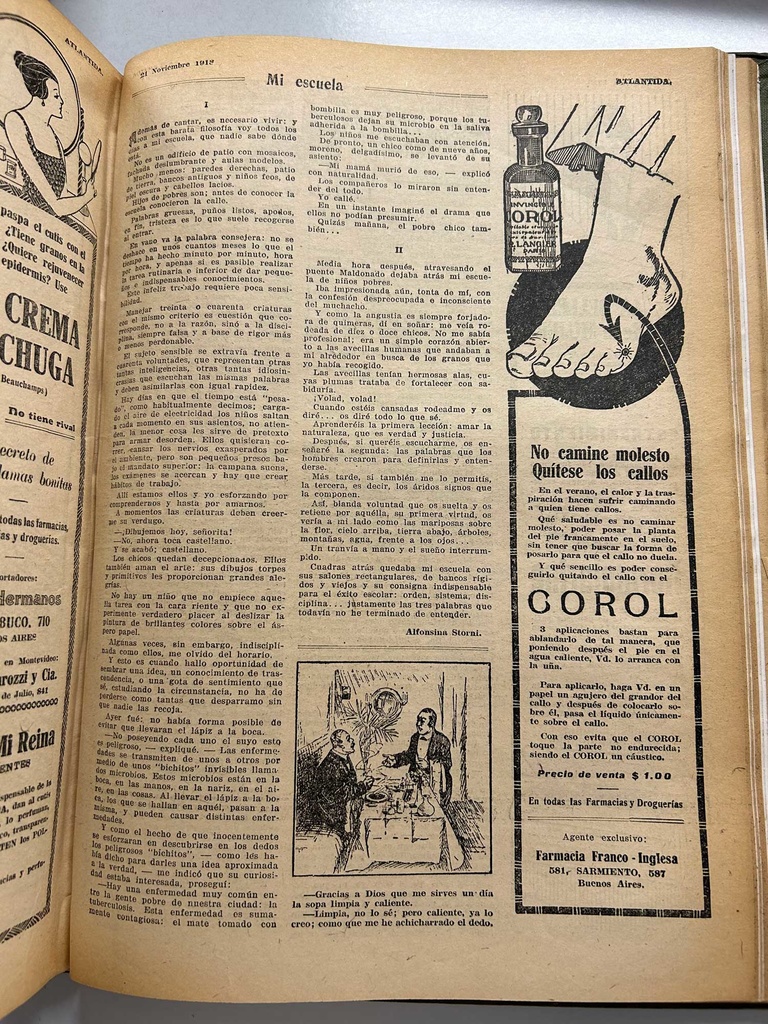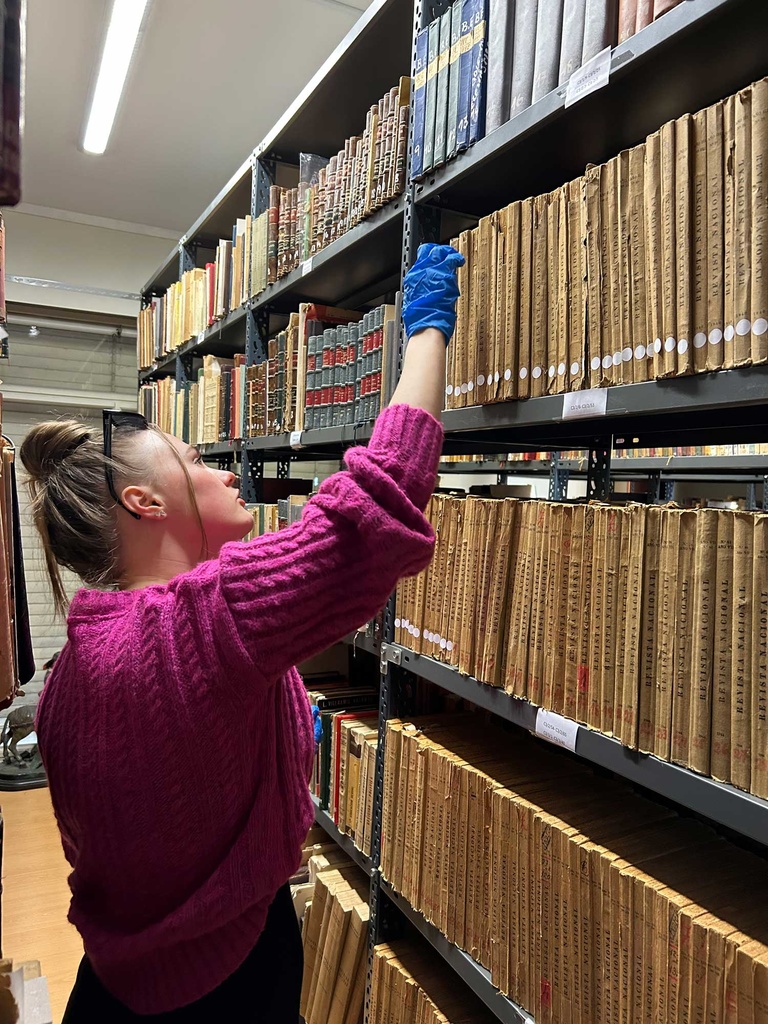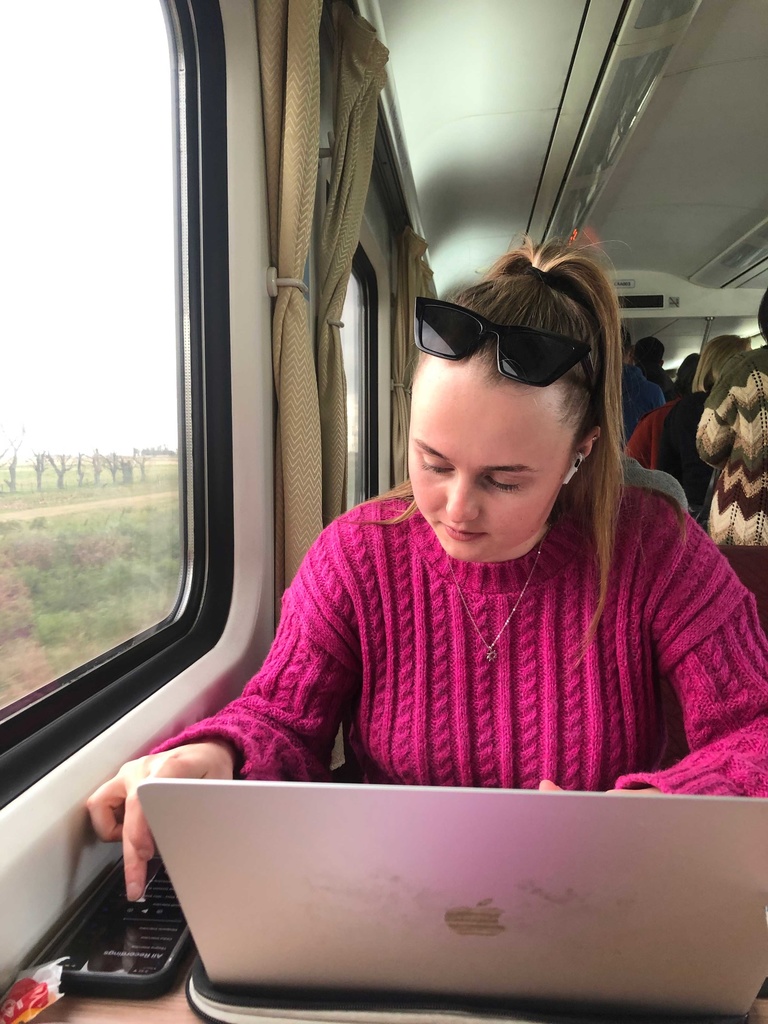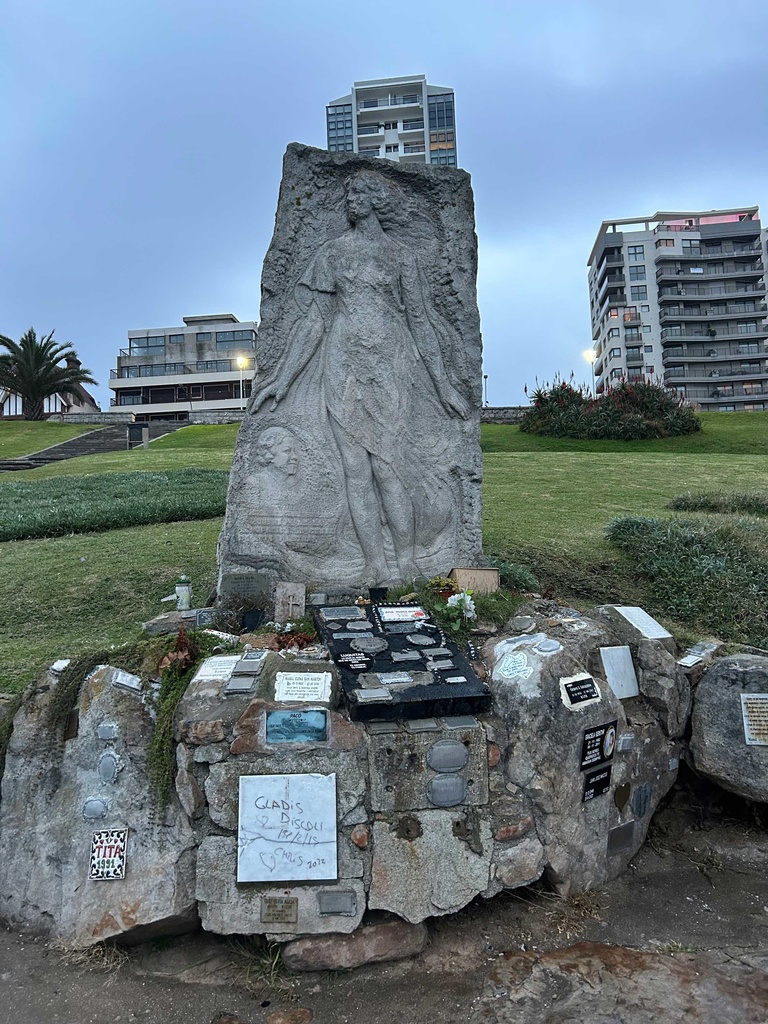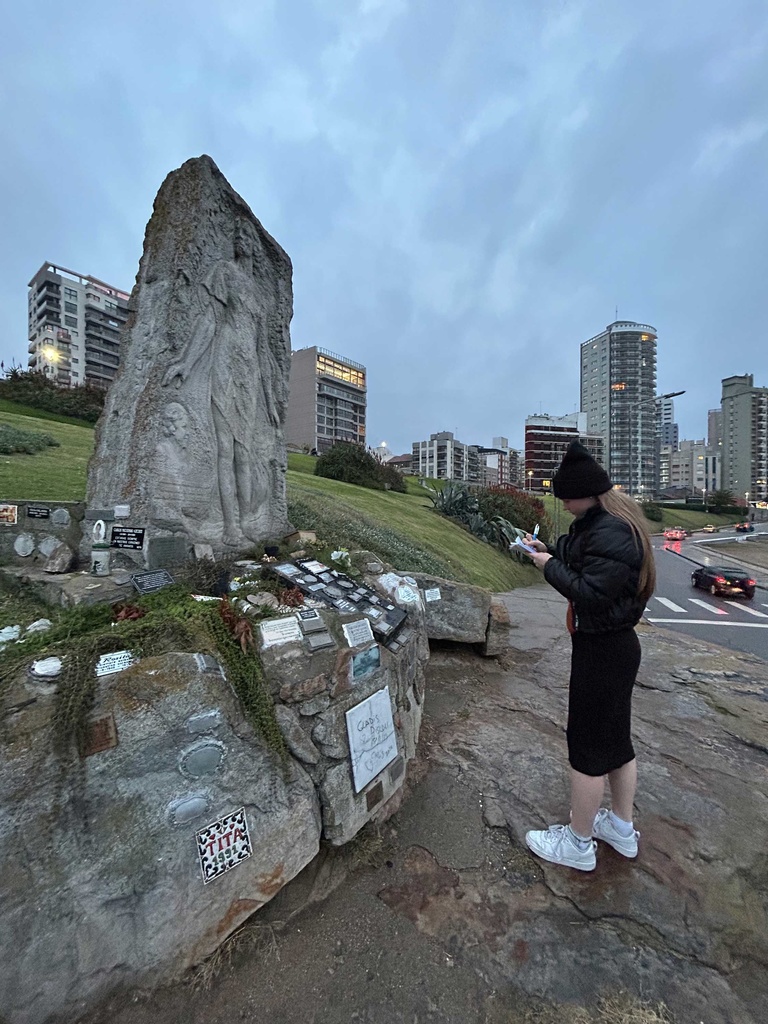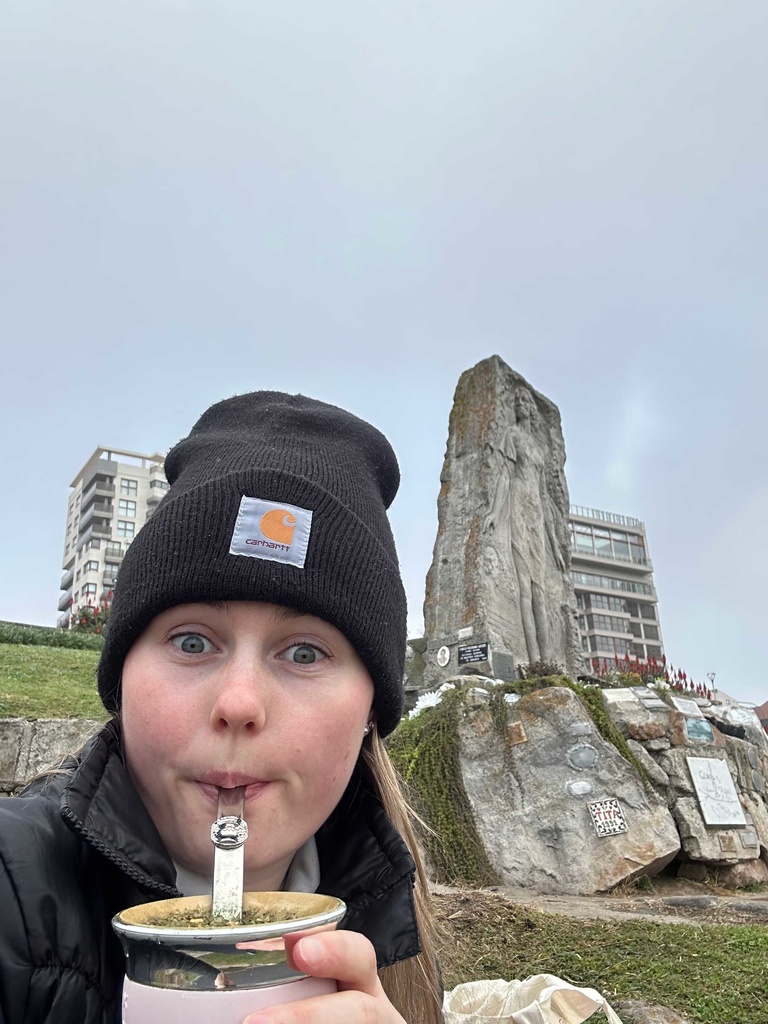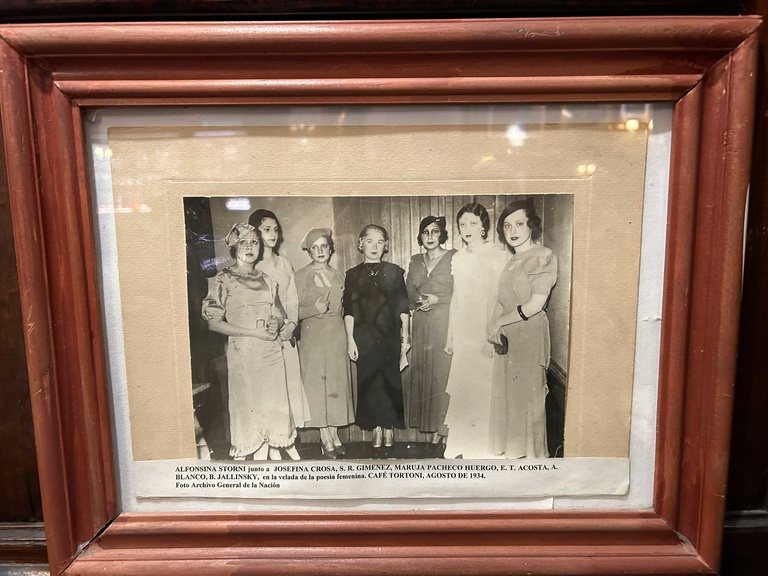Cecilia Bradley, an English and creative writing major from Tempe, Arizona, received a Stanley Award for International Research in 2023 to travel to Argentina and Uruguay over the summer to conduct research. She shares with us a little bit about her research and experience abroad below.
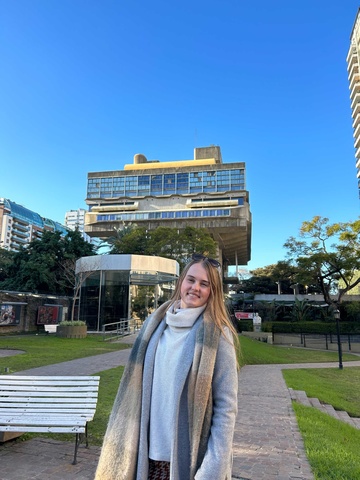
Could you tell us about your research?
I traveled to Buenos Aires, Argentina, and Montevideo, Uruguay, to investigate the life and poetry of the early twentieth century Argentine poet Alfonsina Storni for my honors project in the undergraduate English and creative writing major. My research in Buenos Aires consisted of four components. First, I performed archival research at the Mariano Moreno National Library. I searched for and analyzed Storni’s periodical publications of poetry, fiction, and nonfiction in magazines like La Nación. I interviewed contemporary Argentine writers and International Writing Program alumni, Maria Sonia Cristoff, Cynthia Edul, and Yamila Bêgné. I also interviewed Dr. Karina Galperin, professor of literature and director of La Nación’s Master of Journalism program at the University of Torcuato Di Tella. Lastly, I drafted translations of 10 poems by Storni that will be workshopped in the Undergraduate Translation Workshop class in fall 2023. While in Montevideo for three days, I visited the Center of Documentation and Iberoamerican Studies and Nacional Library of Uruguay to locate and analyze copies of the two lectures given by Storni at the University of Montevideo in 1920 and 1938.
"Receiving the Stanley Award has made me realize that my literary interests are valid and I can pursue a career that involves the subjects that I love."
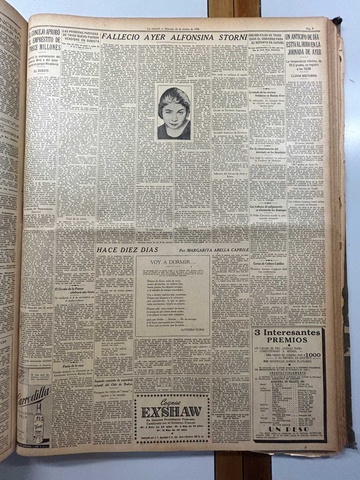
How did this funding assist you in completing your UI degree requirements?
The funding provided by the Stanley Award for International Research allowed me to conduct research that will be used to complete my honors project in spring 2024. Storni’s poetry reflects her struggles with poverty, early motherhood, cancer, and depression. The social infrastructure of the early twentieth century did not provide her with support to face these issues, and Storni ultimately committed suicide. In my honors project, I will produce a novel of magic realism that follows the story of a suicidal American teenager who attempts to drown herself. However, instead of death, the main character washes up on the coast of Argentina and is guided by Storni’s spirit to a better end. The 10 English translations will be featured at the beginning of each chapter of my manuscript and will be paired according to parallel themes and motifs. With the completion of this project, I will have fulfilled all the requirements for graduating with honors in the English and creative writing major at the University of Iowa.
How does this research experience fit into your future professional goals?
Prior to conducting my research, the process of applying for the Stanley Award for International Research developed my essay-writing skills. During my research, I practiced archival and literary research methods, which has prepared me for the rigor of my graduate-level education. I plan to pursue an MFA in creative writing, followed by a PhD in global literatures. I was also able to develop my Spanish-speaking skills in professional and academic environments. Both my archival research and Spanish-speaking experiences have improved my 2023-2024 Fulbright application to be an English Teaching Assistant in Uruguay.
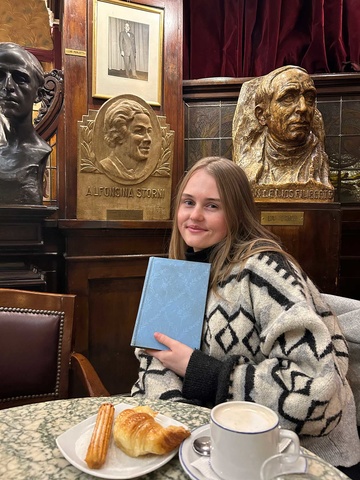
Could you share any memorable experiences from your time abroad and/or from your research experience?
One of my most memorable experiences was finding Storni’s University of Montevideo lectures in the Center of Documentation and Iberoamerican Studies (CDIS) and in the National Library of Uruguay. When I first reached out to the CDIS, they told me that they did not possess the documents I was looking for. However, they invited me and my translator on a tour of the archive regardless. While touring the archive, another researcher (Daniel Serafini) overheard my conversation with the head archivist (Daniela Vairo) and offered to show me how to use a database to find the documents I was looking for. After exploring the archive, I realized that the CDIS had the literary magazine containing Storni’s lecture at the University of Montevideo in 1938 after all. I also discovered that the National Library of Uruguay—located 20 minutes away by car—had a copy of her second lecture in 1920. Ms. Vairo contacted her colleague at the National Library of Uruguay, and my translator and I made an appointment to visit the library’s archive later that day. With the help of two archivists at the National Library of Uruguay, not only was I able to locate Storni’s second lecture, but I was also able to find digitized letters between Storni and her colleagues from Uruguay, as well as Uruguayan articles published about Storni.
What did receiving the Stanley Award for International Research mean to you?
Receiving the Stanley Award for International Research was such a thrilling moment for me. I worked on the research proposal for three months, receiving countless rounds of feedback and dedicated a majority of my free time to the editing process over winter break. There was even a moment when I felt very discouraged and almost abandoned the application completely. However, when I was notified that I had received the award, I felt so incredibly proud of myself. In addition to the validation of my efforts, the experience of having a major university financially supporting my literary and writing interests was so uplifting. Receiving the Stanley Award has made me realize that my literary interests are valid and I can pursue a career that involves the subjects that I love.
What advice do you have for other undergraduates who would like to conduct research abroad, but may not know where to start?
In regard to the research proposal, have as many people read and review it as possible! Because I told everyone in my life (professors, advisors, friends, employers, etc.) about my proposal, I received feedback from many different perspectives. Many of those who read my application also put me in touch with other people, some of whom became crucial to the success of my proposal.
The Stanley Awards for International Research are open to both undergraduate and graduate students. Application deadline is January 29, 2024.
International Programs (IP) at the University of Iowa (UI) is committed to enriching the global experience of UI students, faculty, staff, and the general public by leading efforts to promote internationally oriented teaching, research, creative work, and community engagement. IP provides support for international students and scholars, administers scholarships and assistance for students who study, intern, or do research abroad, and provides funding opportunities and grant-writing assistance for faculty engaged in international research. IP shares their stories through various media, and by hosting multiple public engagement activities each year.
